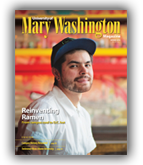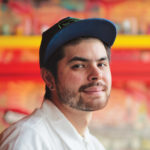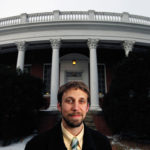It’s five hours before Toki Underground opens its doors to customers, but the cubbyhole of a restaurant perched above a bar along H Street in Washington, D.C., is already busy. Inside the impossibly small kitchen, owner and chef Erik Bruner-Yang ’07 and a colleague dump buckets of pork marrow bones into cavernous metal pots and set them to simmering on the stovetop. Behind them, a third member of the team chops fresh vegetables that will season steaming bowls of ramen later that evening. A few feet away, a fourth sorts curly strands of noodles into uniform piles. The restaurant’s bar is papered with invoices as deliverymen come and go, dropping off beverages, crates of plastic carryout containers, and bunches of fresh ginger, garlic, and mustard greens. The deliveries come daily to 1234 H St. NE for two reasons. First, Bruner-Yang will use only the freshest ingredients when whipping up dishes like mom used to make. Second, at 675 square feet, the tiny Toki Underground − … [Read more...]
Halls of History
Preservation professor traces UMW’s story through its bricks and columns
The UMW Department of Historic Preservation has a national reputation for scholarship about historic buildings. Now it’s turning that scholarly eye on its own backyard. The UMW campus is a trove of 20th-century architecture and history, but preserving that character can clash with 21st-century needs − as students, faculty, and administrators learned from a 2010 controversy over a plan to put a new student center on the site of Seacobeck Hall. Students and alumni argued to save Seacobeck, which they saw as one of the most significant buildings on campus. Ultimately, Chandler was chosen as the site because renovations over the years had left little of its original design intact. The administration’s thoughtful response to the “save Seaco” effort led to a request that the historic preservation department produce a comprehensive preservation plan. The task fell to the new guy, but he wasn’t being picked on. Michael Spencer ’03, an assistant professor of historic … [Read more...]


